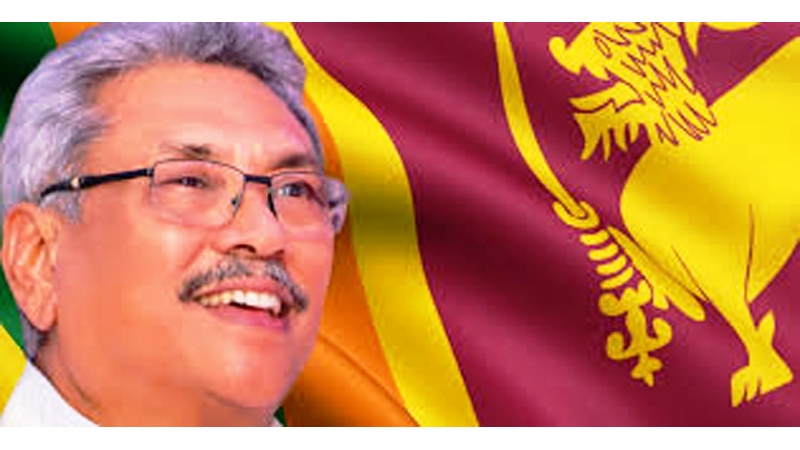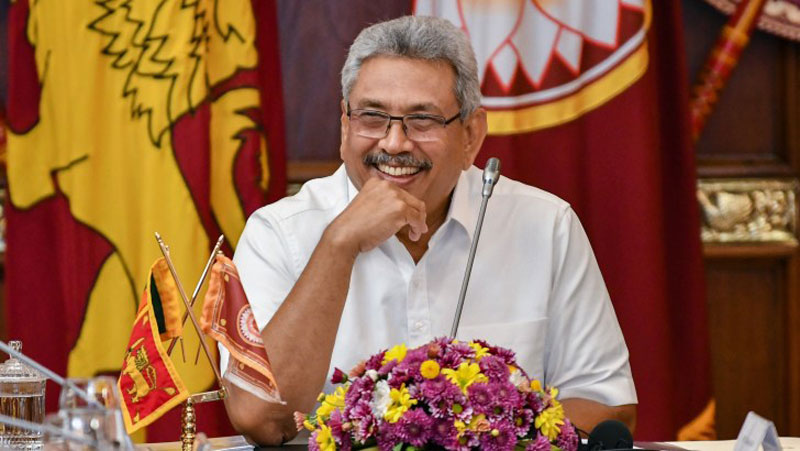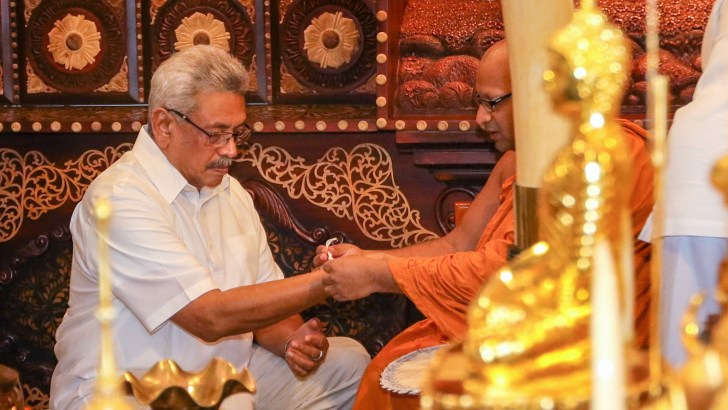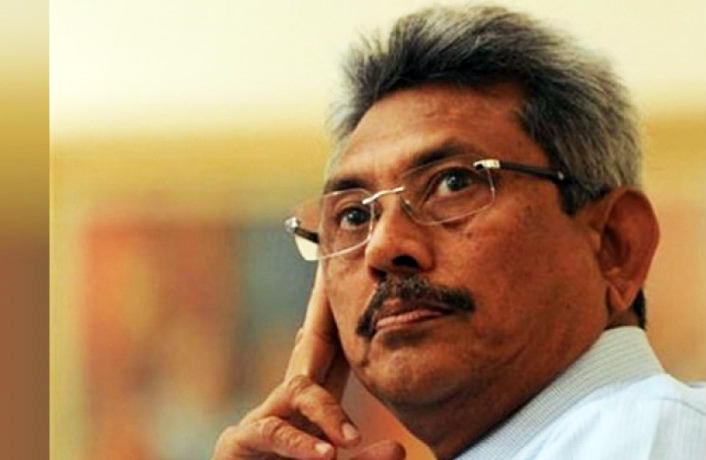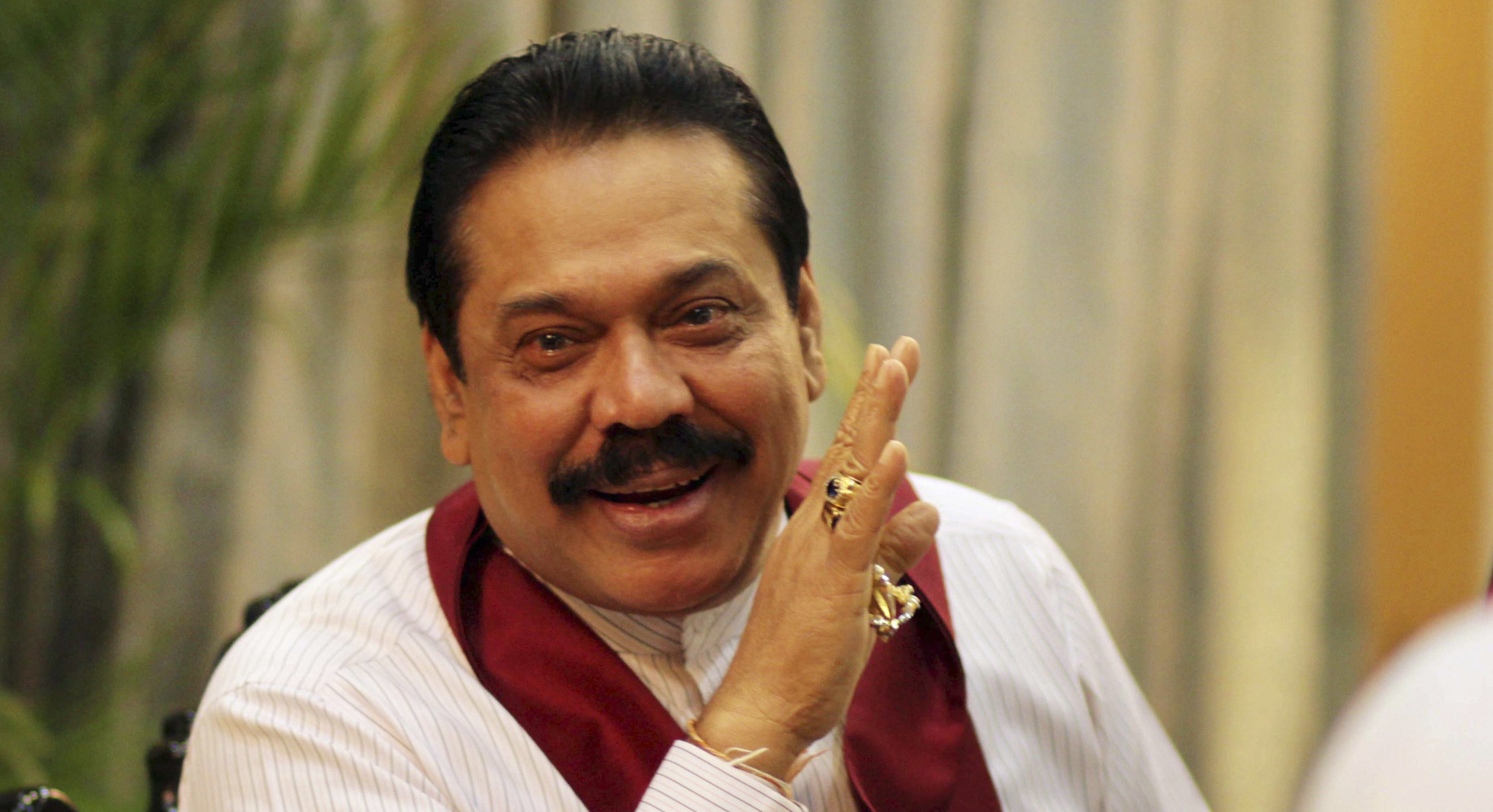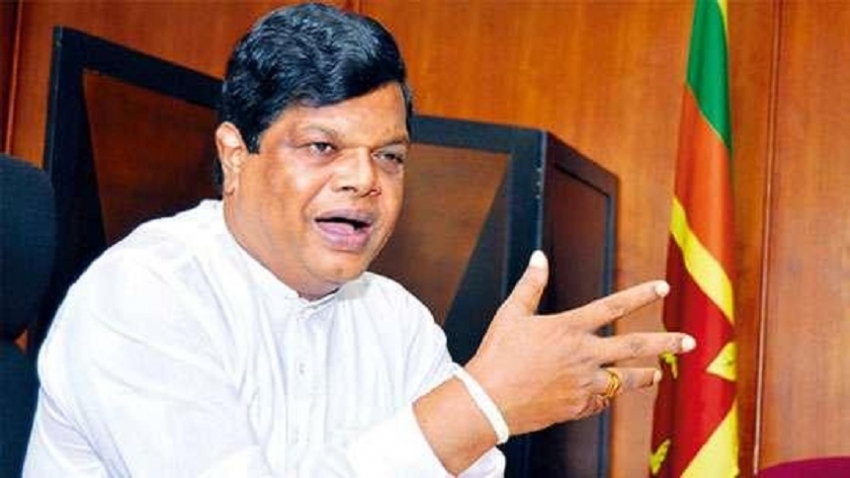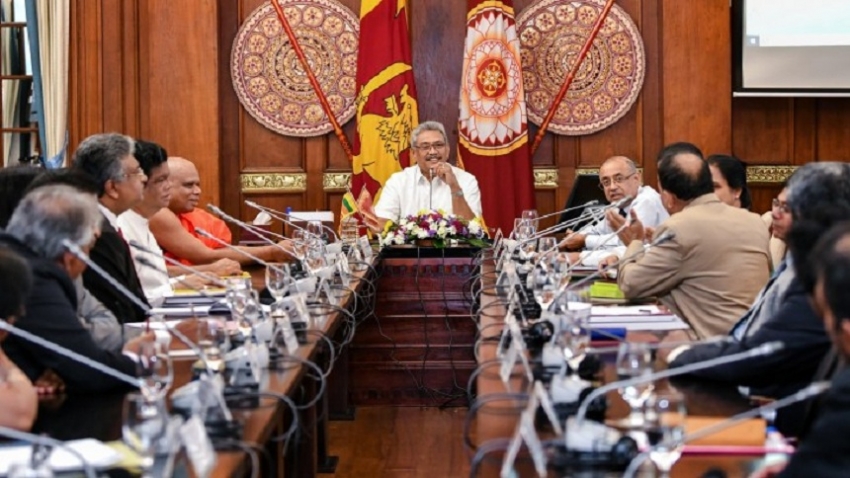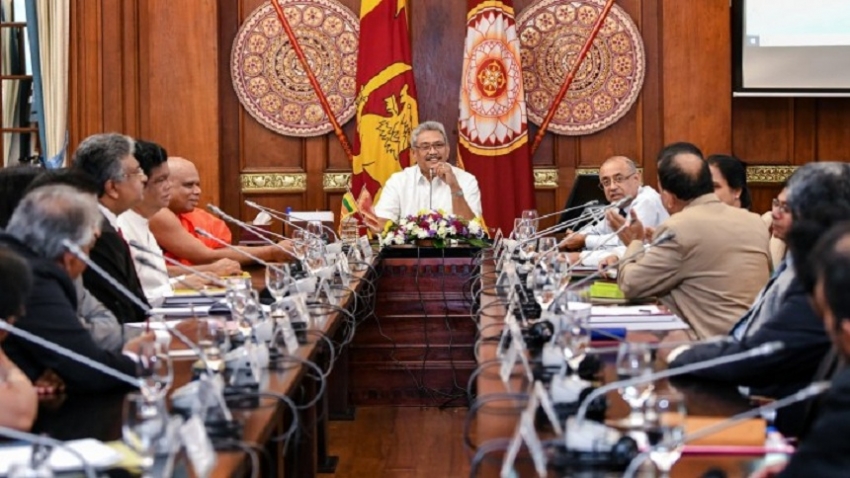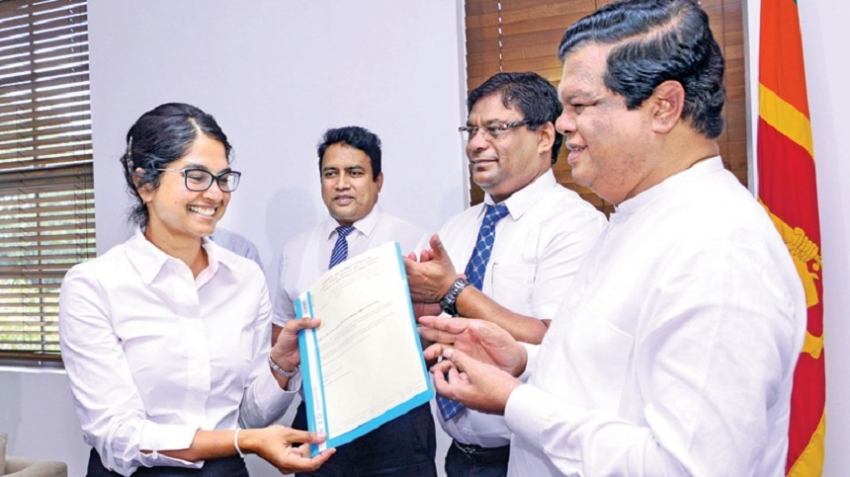President Gotabaya Rajapaksa emphasised that time has come for all stakeholders including the judiciary and legal fraternity to make the justice system more people friendly, efficient and effective.
Addressing the annual National Law Conference 2020 as Chief Guest at the Jetwing Blue Hotel in Negombo last Friday (14), the President said the system of justice should provide meaningful avenue for ordinary citizens of the country to resolve their disputes expeditiously and in a convenient manner.
The annual National Law Conference 2020 was organized by the Bar Association of Sri Lanka.
The theme of this year’s conference was “Sri Lanka, a Financial and Commerce Hub-Vistas, Challenges and Opportunities.”
“The time has come for all stakeholders including the judiciary, government, legal fraternity and all other citizens concerned to work together and make the system of justice more people friendly, efficient and effective’, President Rajapaksa said.
The President further stated that rule of law will inevitably fail in the absence of an independent judiciary.
“The Independence of the judiciary is the cornerstone of the rule of law. Without the independence of the judiciary, the rule of law will inevitably fail. The system of justice has to be complementary with an efficient, effective and affordable process which will provide meaningful avenue for ordinary citizens of the country to resolve their disputes expeditiously and in a convenient manner,” the President said.
President Gotabaya Rajapaksa also requested the members of legal profession to assist in promoting local and foreign investment by eliminating unnecessary bureaucracy and excessive regulations. The President highlighted the necessity of providing facilities and human resources for more efficient and effective methods of dispute resolution such as adjudication and arbitration.
“We also need to ensure better patent protection and more representation in the global intellectual property rights so that our inventors, creators and entrepreneurs can be encouraged. It will also increase investor confidence,” the President said.
“The primary focus of my government is to rapidly develop the country, eradicate poverty and uplift the living standards of the people. There are a number of significant opportunities that Sri Lanka can exploit in today’s context to achieve the rapid development we expect. The 21st century is widely acknowledged as the knowledge century,” President Rajapaksa said.
“New technology and innovations are now changing the way the world works at a rapid pace. Technological advances in areas such as Artificial Intelligence, Big data, robotics, 3D printing, bio-engineering the internet of things and nanotechnology that can bring about sweeping transformation across global commerce and industry. Sri Lanka must not be left behind with these changes. We must instead try to make use of the opportunities. In our quest for rapid economic development, we must realise that the centre of gravity of the global economy and politics has been shifting significantly towards Asia during recent decades, the President further said.
The President also observed that his government will implement systematic strategies to attract Asia, which not only home to largest population segment of the globe but also has the fastest growing middle class population.
“The Organization for Economic Cooperation and Development (OECD) has estimated 2030 Asia will be home to 64% of the global middle class and account for well over 40% of middle class consumption. This fast growing middle class with considerable spending power in countries such as India, China, Japan and regions such as ASEAN, the Middle East represent the tremendous opportunity for Sri Lanka given its unique strategic location in the middle of the Indian Ocean. Achieving rapid economic development through the broad opportunities afforded to us by true trends of this rapid technological change and the emergence of Asia as a whole, most significant marketplace demands novel technology,’ the President further said.
“We need short term, medium term and long term strategies at national level as well as sector specific levels to make maximum use of these opportunities. These strategies need to be supported by significant changes to underline the enables such as education, legal and regular framework, financial system and infrastructure.
The President also highlighted the importance of the Information Technology sector to provide a tremendous growth opportunities for Sri Lanka.
The President further said his government is committed to assisting the development of the country’s IT industry to take advantage of increasing opportunities.
“We have already granted significant tax benefits to companies in the IT sector and welcome the support of local and foreign companies to invest in this field by creating more jobs, the President further said.
In his address, the President also highlighted the importance of developing highly potential areas like the tourism sector.
The President emphasised the importance of attracting more countries to develop Sri Lanka’s tourism sector.
“We must make use of our abundant natural and cultural attractions. The quality of the workforce engaging in the tourism sector is required for development,” he said.
The President further said his government would take necessary action to become Sri Lanka self sufficient in agriculture by introducing new technologies, water management, high quality seeds, increase of use of organic fertilizer and enhancing storage and transport facilities.
“We must also introduce a suitable digital platform to assist the farmers so that they do not have to depend on third parties. The digital platform will enable the farmer to decide what crop he grows during what season. But he also enable to get a good price for his production, scientific information on appropriate pesticide and weedicide,” President Rajapaksa said.
The National Law Conference 2020 was officially declared opened by BASL President Kalinga Indatissa PC. The welcome address was delivered by Co-Chairman of National Law Conference 2020 President’s Counsel Razik Zarook. The Convener of the National Law Conference 2020 Attorney-at-Law Isuru Balapatabendi and the Secretary of this year conference Attorney-at-Law Vishwa de Livera Tennekoon also addressed the gathering.
Speaker Karu Jayasuriya, Justice Minister Nimal Siripala de Silva, Attorney General Dappula de Livera and former Prime Minister Ranil Wickremesinghe were also present at the inaugural ceremony.
The National Law Conference 2020 was held from February 14 to 16.

